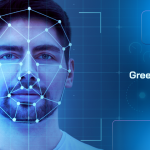
A recent study on human-AI interaction in skin cancer diagnosis has revealed the potential of artificial intelligence (AI) to improve accuracy in detecting and diagnosing skin cancers. The study, conducted by researchers at Stanford Medicine and published in the journal npj Digital Medicine, demonstrates the valuable role that AI can play in assisting healthcare practitioners and ultimately improving patient care.
The researchers reviewed 12 studies comprising over 67,000 evaluations of potential skin cancers, comparing the diagnostic performance of healthcare practitioners with and without AI assistance.
The results showed that healthcare practitioners working with AI guidance achieved higher accuracy in diagnosing skin cancers compared to those without AI assistance. The improvement in accuracy was observed across different levels of training and specialization, with non-dermatologists benefiting the most.
Specifically, it was detailed that without AI assistance, approximately 75% of people with skin cancer were accurately diagnosed by practitioners, while those with AI assistance achieved a sensitivity rate of about 81.1%.
Professor Eleni Linos, the study’s senior author and leader of the Stanford Center for Digital Health, expressed optimism about using AI in clinical care. She stated, “Soon our patients will not just be accepting, but expecting, that we use AI assistance to provide them with the best possible care.”
The use of AI algorithms in clinical settings, including dermatology, has been steadily increasing. These algorithms are trained by feeding them thousands or even millions of images of skin conditions, labeled with relevant information such as diagnosis and patient outcome. Through deep learning, the algorithms learn to recognize image patterns that correlate with specific skin diseases. Once trained, the algorithms can suggest diagnoses based on new patient images.
The findings of this study have significant implications for the field of dermatology and the broader healthcare industry. Early and accurate detection of skin cancer is crucial for successful treatment and improved patient outcomes.
“If this technology can simultaneously improve a doctor’s diagnostic accuracy and save them time, it’s really a win-win. In addition to helping patients, it could help reduce physician burnout and improve the human interpersonal relationships between doctors and their patients,” Linos said.
The incidence of cancer in individuals under 50 has surged globally, with a study in BMJ Oncology indicating an increase of approximately 80% over the past thirty years. Concurrently, melanoma skin cancer rates have escalated by 38% in the last decade, with Spain experiencing a consistent annual rise of 2.4%.
With the help of AI, the industry is aiming to overcome barriers that prevent people from seeking timely medical attention for skin concerns, promoting positive behavioral change and potentially saving lives.
While the study demonstrates the potential benefits of AI in skin cancer diagnosis, it is important to address potential limitations and biases associated with AI algorithms. Ongoing research and collaboration between healthcare practitioners and AI experts are necessary to ensure the responsible and ethical implementation of AI technologies in healthcare.


![11 Best AI Video Generators for [current_date format='Y']: Create Stunning AI Videos 3 Best AI Video Generator](https://www.greenbot.com/wp-content/uploads/2025/03/Best-AI-Video-Generator-150x150.png)
















